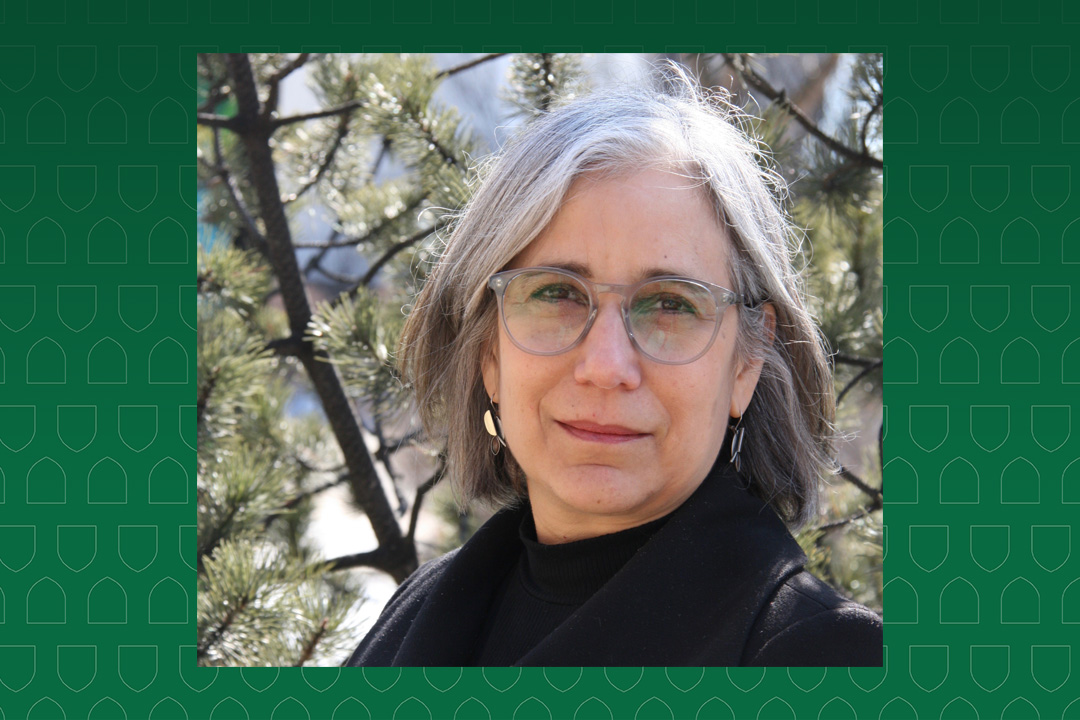
New dean keen to support graduate students, postdocs
Changing jobs, cities and provinces can be challenging at the best of times. Now try doing it during the middle of a global pandemic.
By James ShewagaFor Dr. Debby Burshtyn (PhD), the new dean of the College of Graduate and Postdoctoral Studies at the University of Saskatchewan (USask), the physical move proved easier than expected, but the challenge of connecting with her colleagues through virtual means only has given her a new appreciation of what most USask students are experiencing as they adjust to starting the semester remotely.
“I can really relate to the students who are starting their courses in a virtual way, because I have been doing the same thing and I have some understanding of what that might feel like for them,” said Burshtyn, who began her five-year term at USask on July 1. “It certainly is an added twist, thinking about how you build new relationships through virtual means. But what I have found is that people have been very generous with their time and I have had lots of one-on-one meetings online with both staff and senior leadership.”
Burshtyn’s background in graduate student administration helped her hit the ground running as the university geared up for the start of the fall term, with the focus largely on remote learning as most students, staff and faculty continue to work from home. With limited access to campus, she has spent just a day in her new office (“Just enough time to put my signature coffee cup on the desk,” she said), with all staff meetings conducted online.
“I am really impressed with how well our unit is doing working remotely,” she said. “One thing that I have come to realize is how much I usually rely on non-verbal cues and looking at body language, especially in trying to become familiar with the staff. I am hoping that I am developing other skills and maybe my listening skills will actually improve because of this experience.”
Burshtyn brings extensive experience to USask, with a resume of success in leadership roles in graduate student education at the University of Alberta, including having served as associate dean as well as interim vice-provost and dean of the Faculty of Graduate Studies and Research. She also brings a passion for research shared by graduate students and post-docs, giving her unique understanding of their particular program challenges, including the need to have access to labs, facilities and collections to conduct their work.
“I absolutely think having that connection is a great way to keep me grounded, because those of us who work in labs and collections, we really love what we do and research is our passion,” said Burshtyn. “I think it is very important to have that connection with the students.
“Because of the pandemic, we have also been focused on how we communicate with students, and a new virtual orientation and onboarding platform online was already in the works. That is really exciting, because a lot of thought and research went into making it from the student’s perspective, as opposed to what we think students need to know. These are the silver linings that we find in going through this experience.”
As she continues her crash-course in connecting with colleagues and senior leaders in colleges across campus, Burshtyn has set a number of priorities and goals as the new academic year begins.
“The big things that I am really focused on are equity, diversity, inclusion, and to be good allies in reconciliation, and to figure out where a college of graduate students fits into the broader strategies that the university is already engaging in,” she said. “I am also really interested in developing clear learning outcomes to help students through to their next career steps, and that is not just the research-intensive thesis-based students, but across all programs, and for postdoctoral fellows as well.
“The third goal has to do with keeping our faculty engaged. Sometimes it’s simply to be in the room and involved in conversations about the students, to be there to always ask how this will impact graduate students in particular.”
As she settles into her new role, Burshtyn is also looking forward to resuming her own active research program, funded by the Canadian Institutes of Health Research. Burshtyn’s groundbreaking work in regulation of immune cells is internationally recognized, and she wants to continue her research on checkpoint inhibitors in human killer cells. So what exactly are checkpoint inhibitors?
“There are ways that the immune system has of distinguishing between something that is foreign and dangerous, or belongs in the body and is OK, and in some extreme situations, to temper the immune response so that it does not start to cause pathology and damage,” she said. “This is something we are seeing in COVID-19. Overreaction of the immune response that is damaging in tissues such as the lungs.”
“So, as the year progresses, I hope to establish a modest research program here to continue my work, because I continue to be passionate about research.”

